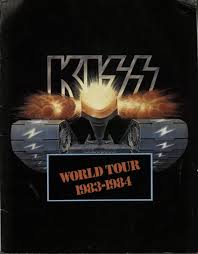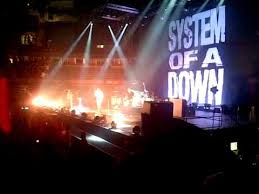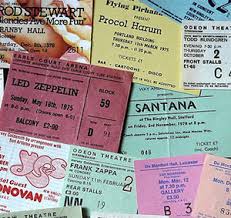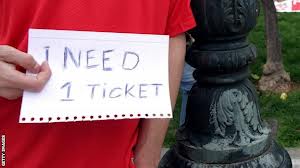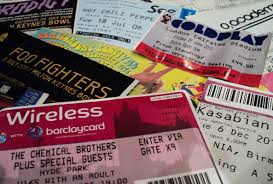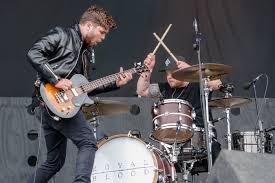In 1983 Kiss put on their first proper tour of the UK. Aged 14, four of us got tickets by getting an older sibling to phone the box office on the morning they were released. They cost £5 each, and we went along to the Glasgow Apollo to see this historical event. Throughout the 1980’s and 1990’s I continued to go to whichever gig I wanted to, without ever struggling to get a ticket – if I really wanted one. This week, System of a Down (a band I’ve never seen live yet but would really like to) announced they were playing London next April, and I am not even going to bother trying to get a ticket. Getting tickets for ‘big’ gigs has become an irritating and pointless exercise.
Bands have tried many tactics to outwit the touts over the years but, particularly since the advent of the internet, those who bothered have been fighting a losing battle. Touts have always been around. I even used one to pay three times face value for an Aerosmith concert in 1989. The main way bands try and stop them now is through pre-sales; with a special code to get access before general release. In theory, this rewards and assists proper fans, with a genuine interest in the band and its music. At first this worked pretty well. However, the touts have circumvented this process by getting teams of buyers (who are not interested in going to the gig) to pretend to be fans, get the codes, and maximise their uptake.
However, it’s not just traditional touts that are interfering with genuine fans’ chances of seeing their favourite bands live; an army of vested interests and poseurs has joined them. Corporate tie-ins, where big companies siphon off whole blocks of prime tickets to give to employees, as rewards or inducements for business partners, or to reward ‘loyal’ customers; trendy, middle-class folk, show off by paying stupid amounts of money for VIP packages with whole blocks or front rows given over to this ostentatious grandstanding; radio stations, TV programmes, magazines, websites, et al get dozens of tickets to ‘give away’ in competitions. The majority of these tickets end up on the internet at many times the face value – thousands of individual touts fleecing the real music fans and ripping off the bands. Even worse, in some ways, is tickets left unused or taken up by folk who really didn’t give much of a toss in the first place but won them or got given them.
The latest, and most reprehensible, development has been the emergence of ticket resale websites. These masquerade as a service to people who bought a ticket but, for whatever reason, are no longer able to go, and want to sell the ticket on. However, all they really are is a place for people who were never going to the gig, to sell tickets at massively inflated prices to desperate fans. The worst thing is the corporate complicity in this process. It’s just legitimised and facilitated touting. I recently tried to get tickets for an up-and-coming band – Royal Blood – but found they had sold out instantly. On the Ticketmaster site, which told me there were no tickets left, there was a side bar with a resale site called GetMeIn. Within seconds of selling out on the Ticketmaster site, they were being offered at £200 on there. Meanwhile, on the same page telling me there were no original £14 tickets left to buy: “Why not try ‘GetMeIn’?” suggested Ticketmaster. “Why not f*ck right off?” I thought. That’s a 1300% mark-up and not one penny of it would be going to the band. This ‘service’ is run by Ticketmaster. How can that be right?
With the forces of darkness lined up against me, I have opted not to waste my time and emotional energy on trying (and failing) to get SOAD tickets. I also won’t feed the beast by paying anyone way over the odds for them. It’s frustrating and upsetting but I fear there’s too much money to be made for it to change anytime soon.

